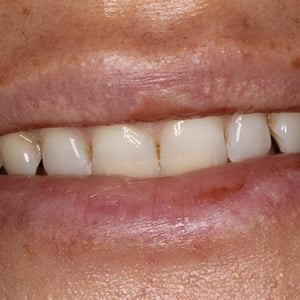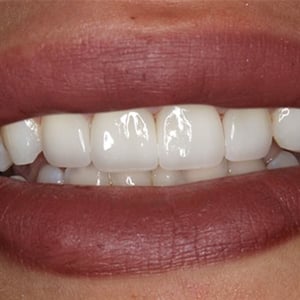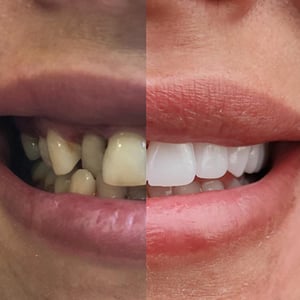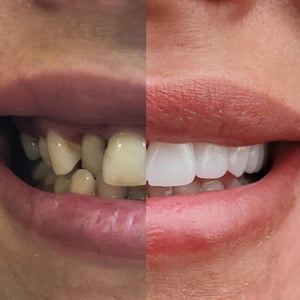Dental Calculus Cleaning
Tartars are dental plaques that are formed within a few days as the first signal to oral health due to regular dental care. These plaques, which are formed over time, turn into tartar and dental calculus.
How Does Tartar Form?
The first signal to oral health of improper dental care is dental plaques that form within a few days. Even if it is done regularly, being cleaned incorrectly also plays a big role in the formation of dental plaque. In cases where plaque formation cannot be removed, it turns towards permanent settlement and tartar formation. After reaching this process, recovery cannot be achieved with home care. Clinical dental scaling should be done by a specialist.
How Often Should Teeth Cleaning Be Performed?
Since tartar formation occurs at the end of a process, it is possible to prevent it with regular maintenance before this period. Well, dental plaques formed and adequate cleaning could not be provided, then dental tartar and tartar formed. Should dental scaling be repeated afterward? How long should it be repeated?
Although it is common belief that a renewal period of 6 months or once a year for tartar cleaning is common, we cannot accept it as a correct answer. It would be a wrong opinion to say that there is only one answer to this question. These renewal periods vary by the doctor according to the oral health of the people or the conditions that will adversely affect their oral health. For this reason, it is necessary to determine the dental scaling renewal process according to expert advice.
In Which Situations Does Teeth Stone Formation Accelerate?
In general, this is not the only reason for the formation of tartar, which is caused by insufficient tooth and gingival cleaning. Some diseases that people have and the drugs they need to use due to these diseases accelerate the formation of dental calculus. We can summarize the situations in which this process accelerates as follows.
• Dry mouth due to aging.
• Regular drug use as a result of chronic diseases.
• Having to be treated with radiotherapy from the head and neck region.
• Consuming a lot of starchy and sugary foods.
• Using cigarettes and tobacco products.
How is calculus formation prevented?
In the previous parts of the article, we said that we can prevent the formation of dental calculus with cleaning. The processes to be implemented and the issues to be considered for this can be listed as follows.
1. Teeth should be brushed at certain intervals during the day.It should be planned to be 3 times.
2. Brushing the teeth vigorously; It can damage gums and tooth enamel. For this reason, brushing both the roots and teeth with a 45-degree angle while brushing the teeth will give the most optimal results.
3. It is recommended to use dental floss once a day. Since the toothbrush cannot enter between the teeth that are close to each other, bacteria can accumulate in those parts. By using dental floss, these bacteria are prevented from turning into tartar.
4. Brushing your teeth with abrasive products will damage the teeth. Since this weakens the tooth structure, it supports the formation of bacteria.
5. Washing the mouth after consuming sugary and sticky foods will prevent plaque formation.
6. During tooth cleaning, the tongue must also be cleaned. The tongue creates the most suitable environment for the storage of oral bacteria. For this reason, tongue cleaning should be done at least once a day.
7. Since the use of tobacco products primarily causes the formation of dental plaque, it is recommended not to be used.
Does Teeth Cleaning Damage Teeth?
One of the biggest mistakes known among the public is that the process of cleaning the teeth damages the teeth. Of course, people have various reasons for this, but these reasons or sensations do not reflect the truth. We can take a look at the correct explanations of these reasons together.
“After I had a dental scaling, the spaces between my teeth opened up.”
This view is wrong, the correct one is as follows. Since the tartar stays on the gums and teeth for a long time, it fills the area and spreads to the area by deepening over time. For this reason, it thins the healthy tissue in the mouth and fills it with tartar and tartar. The longer it takes for tartar cleaning, the greater the damage. When the cleaning process takes place after the teeth are kept for a long time, the cleaned areas become clear, but this is a healthy and necessary process.
“I had tooth loss after scaling.”
As a result of staying in the mouth for a long time, there is a deepening in the gums and tooth roots. In this case, the tooth loss process has actually started to occur. For this reason, a dental scaling cleaning to be done later will destroy this unhealthy foundation in the gums, so tooth loss occurs. However, the reason for this situation is not that the calculus was cleaned, but that it was done late.
“I had stains on my teeth after I had dental scaling done.”
In order to clean the tartar on the gums and teeth, a minimal trauma is done during the procedure. This tiny wear process requires attention to the teeth for an average of 2-3 weeks. For example; It is not recommended to consume dark colored beverages such as tea, coffee or wine during this period. In case of consumption, these stains will penetrate the already open tooth floor.
Teeth cleaning eliminates the effects of regular dental cleaning. It supports the formation of healthy gums and tooth roots.
Treatment Summary
-
Session2-3 sessions
-
Operation Length30-90 min./10 teeth
-
AnesthesiaLocal anesthesia/sedation
-
Discomfort Period1 day
-
Back to WorkThe same day
-
Full recoveryShould Be Checked
-
ResultsPermanent
-
Stay in HospitalNo
WARNING: Everyone is unique.That means that the treatment length, planning and results may be differ The information you see here are the resulting average from a large range of samples..
You can contact us for more detailed information +90 549 791 99 06




